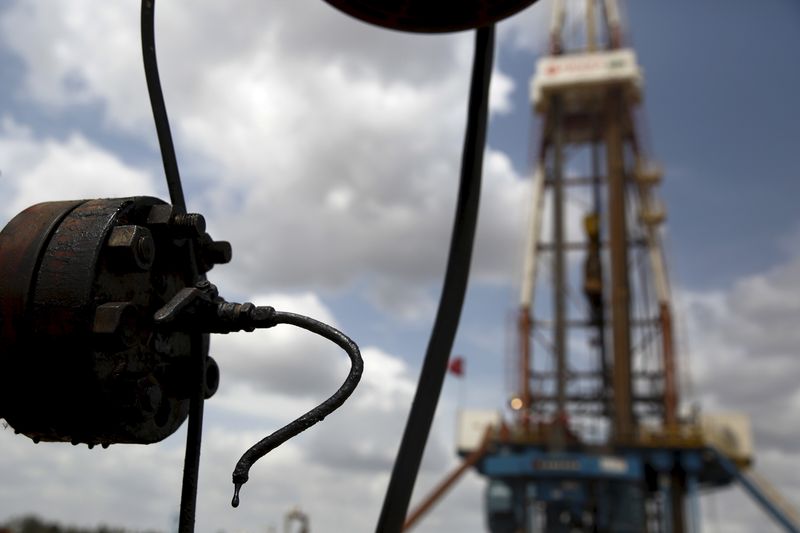By Marianna Parraga
(Reuters) - Venezuela's oil exports declined almost 14% in January compared with December, but crude inventories continued to fall, helping state-run company PDVSA alleviate a glut in storage that accumulated due to U.S. sanctions.
PDVSA and its joint ventures exported 951,903 barrels per day (bpd) of crude and refined products last month versus 1.1 million bpd in December and 1.38 million bpd in January of 2019, according to the company's internal reports and Refinitiv Eikon vessel-tracking data.
Venezuela's exports fell by a third last year to an average of 1 million bpd, mainly due to sanctions imposed in early 2019 by Washington in an effort to oust socialist President Nicolas Maduro while supporting an interim government led by the congress chief, Juan Guaido.
The measures deprived PDVSA of its primary market, the United states, shrank its portfolio of customers in other regions and forced the company to reshuffle output to focus on crude grades demanded by its remaining buyers in Asia.
The accumulation of unsold barrels has eased since October, as PDVSA recovered one of its most important markets, India. Total crude stocks at the OPEC nation declined to 35.9 million barrels at the end of January from a peak of 39.85 million barrels in September, according to data intelligence firm Kpler.
PDVSA did not immediately reply to a request for comment.
India's refining firm Reliance Industries (NS:RELI) resumed direct purchases from PDVSA in November after a 4-month pause, so the Asian nation in late 2019 regained its position as the primary destination for Venezuelan oil.
In January, India was the largest market for Venezuela's oil, receiving 38.5% of total exports, followed by Singapore, Togo and Malaysia, countries where PDVSA's crude is being transshipped and blended before reaching final destinations such as China, the data showed.
The largest receiver of Venezuelan oil last month was Russia's Rosneft (MM:ROSN) with 49% of exports. The company since last year has been the primary middleman for selling Venezuela's crude.
Venezuela's crude output fell in 2019 to its lowest in almost 75 years due to lack of investment, a brain drain that has accelerated under PDVSA's military rule, mismanagement and U.S. sanctions.
After two decades of production declines, Maduro is now pushing for reforms in the oil industry to attract foreign investment needed for recovering oilfields, importing equipment and repairing infrastructure.
In January, Venezuela's oil imports increased to 176,838 bpd versus 124,500 bpd in December, the data showed.
